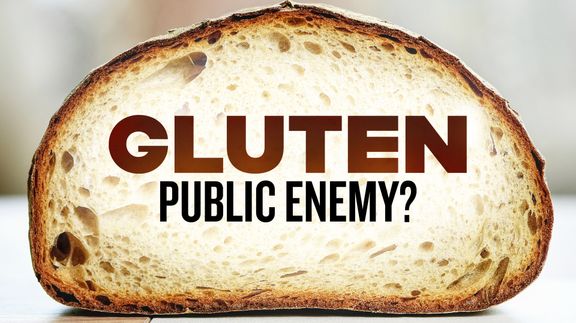

Gluten: Public Enemy?
Wheat, a dietary staple since the dawn of civilization, faces rising scrutiny for substandard products as unsafe farming practices with harmful pesticides, cost-cutting by food companies, oligopolistic control, and corrupt regulatory practices driven by financial gain contribute to tainted food. This fuels a growing anti-wheat sentiment along with efforts to uncover and remedy the root causes.
Wheat, a dietary staple since the dawn of civilization, faces rising scrutiny for substandard products as unsafe farming practices with harmful pesticides, cost-cutting by food companies, oligopolistic control, and corrupt regulatory practices driven by financial gain contribute to tainted food. This fuels a growing anti-wheat sentiment along with efforts to uncover and remedy the root causes.
Related Articles
View AllFrom Food to Mood: Understanding the Gut’s Role in Emotional Health
In the last 20 years, scientists have made great strides in deciphering the complex interaction between the gut and the brain, even dubbing the gut “the second brain.” Read on to…
‘Do Something’: Cutting Your Risk of Cancer One Step at a Time
Many cancers have been shown to be related to lifestyle. To combat the risk, and to improve health, try changing a few habits. It may seem like a lot, but compared to the risk of…
Why Does Eating Comfort Food Make Us Feel So Good?
Comfort foods offer many (psychological, if not physical) benefits. The dopamine release made possible by these foods confers rewards like pleasure, stress relief, and warm…
The Rich Story of Chocolate from Tree to Taste Buds
Chocolate’s history is long, convoluted, and tasty. Beginning in the southern part of what’s now Mexico, cocoa production has been an international industry with questionable…
The Little-Known Evolution of Lunch
Lunch hasn’t always been the midday break we know today. While a meal during peak daylight hours is now quite common, the cultural and social weight of lunch has come about…
7 Key Features of the National School Lunch Program
Since 1946, the National School Lunch Program has provided free or low-cost lunches to American students who could not otherwise afford a healthy, nutritionally balanced midday…
7 Ways BMI is Useless, 6 Better Alternatives, & 5 Reasons to Stick With BMI Anyway
The BMI, or “body mass index,” is a common method to assess body composition. But how accurate is it really, and can it be used to predict health outcomes based on its…
The Skinny on Fat Cells: They're Just Another Body Tissue
Body fat is often scrutinized when evaluating health and diet, but what exactly is it? Fat cells provide nutrients, and regulate temperatures and hormonal changes in the body.